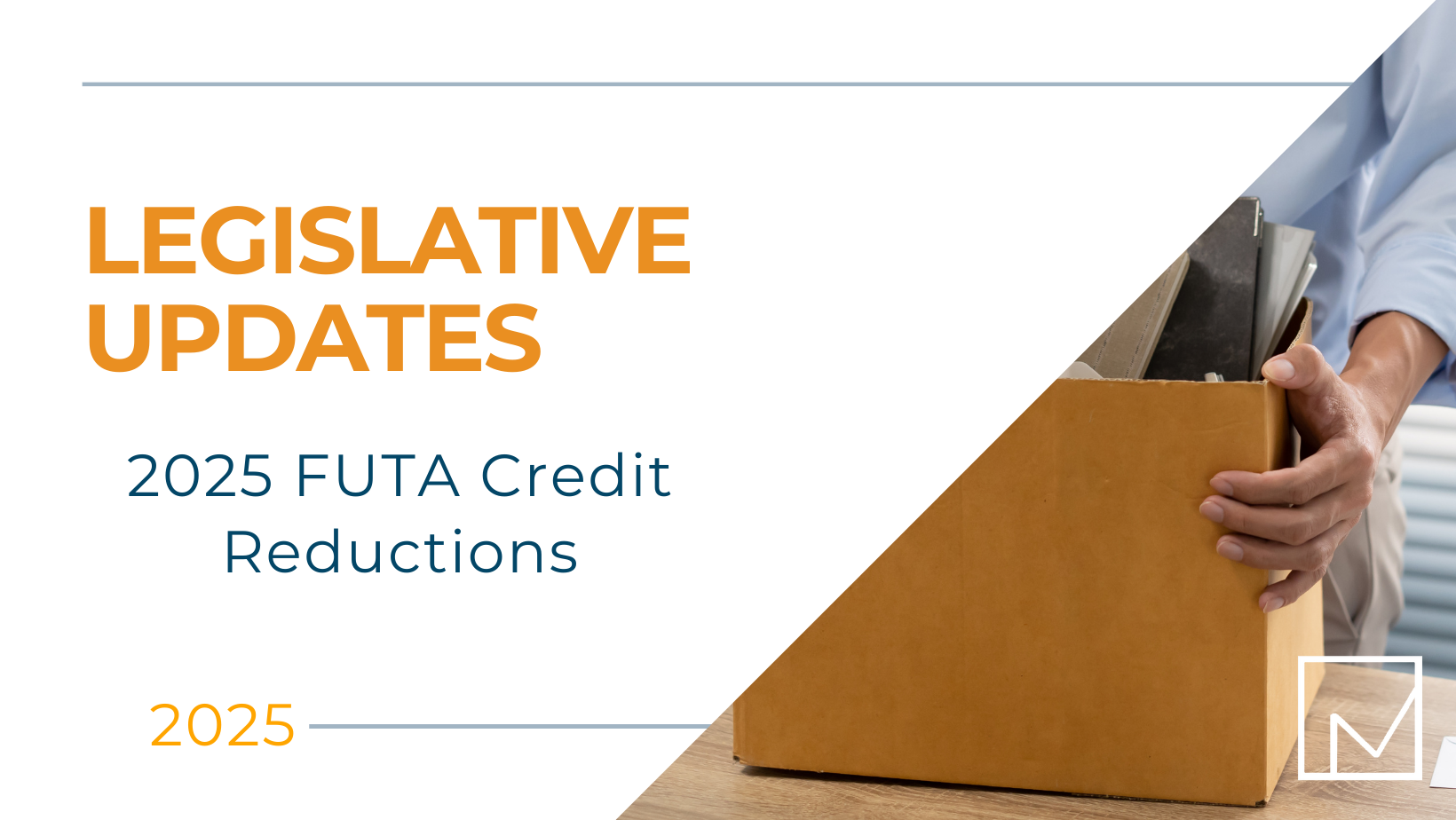At Madison Resources, we understand how crucial it is for staffing firms to stay ahead of legislative and tax changes that affect your business operations. One important update for 2025 is the FUTA credit reduction, which may impact your payroll costs if you operate in certain states.
What is the FUTA Credit Reduction?
The Federal Unemployment Tax Act (FUTA) requires employers to pay a federal tax that funds unemployment benefits. Normally, employers pay a 6.0% FUTA tax on the first $7,000 of wages per employee but receive a credit of 5.4% for paying state unemployment taxes. This brings the effective FUTA tax rate down to 0.6%.
However, when a state’s unemployment trust fund runs low and the state borrows money from the federal government, the credit employers can claim is reduced. This FUTA credit reduction means employers pay more in FUTA taxes until the state repays its federal loan.
States Subject to FUTA Credit Reduction in 2025
For 2025, the U.S. Department of Labor has identified the following states and territories subject to FUTA credit reductions due to outstanding federal unemployment loans:
-
California: 1.2% credit reduction
-
New York: 1.2% credit reduction
-
Connecticut: 1.2% credit reduction
-
U.S. Virgin Islands: 4.5% credit reduction
This means employers in these locations will pay higher FUTA taxes for 2025, reducing the usual 5.4% credit accordingly.
Additional Impact: Benefit Cost Rate (BCR) Add-On
Beyond the standard credit reduction, some states may also face an additional Benefit Cost Rate (BCR) add-on. This surcharge is calculated based on the state’s unemployment compensation outlays relative to taxable wages and further increases the FUTA tax rate to encourage faster repayment of federal loans.
In 2025, the BCR add-ons potentially affect:
-
California: 3.7%
-
New York: 1.1%
-
Connecticut: 0.8%
What This Means for Staffing Firms
Even small percentage increases in FUTA tax rates can add up quickly, especially for staffing firms with large employee rosters. For example, in California, the combined effect of the credit reduction and BCR add-on could push the FUTA tax rate to nearly 4.9%, resulting in an additional tax of over $300 per employee for 2025
How Staffing Firms Should Prepare
To minimize surprises and maintain smooth operations, staffing firms should:
-
Stay informed: Monitor updates from the Department of Labor and your state’s labor department on FUTA credit reductions and loan repayments.
-
Adjust budgeting: Factor in the increased FUTA tax rates when planning payroll and pricing your services.
-
Consult experts: Work with your CPA, attorney, or payroll provider to ensure compliance and explore strategies to manage the increased costs
Final Thoughts
FUTA credit reductions are a complex but important consideration for staffing firms operating in affected states. Staying proactive and informed will help your business adapt efficiently and avoid unexpected tax burdens.
Contact Information
For more detailed information, visit the U.S. Department of Labor’s FUTA Credit Reduction page.
U.S. Department of Labor
📞 Employment and Training Administration Line: 1-877-US-2JOBS (1-877-872-5627)
📧 Kevin Stapleton: Kevin@dol.gov
📧 Dyana Cornell: Dyana@dol.gov
Stay Informed. Stay Compliant. Grow With Confidence.
Explore our website to find more Legislative Updates. Madison Resources is the premier payroll funding and back office support partner to the staffing industry. Grow with confidence.


